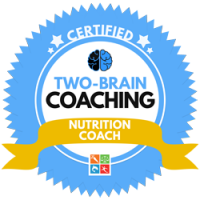There’s so much information out there about food and dieting that we can often get bogged down by the sheer volume of information and for every perfect way of eating we find online 5 minutes later we find an article saying that it’s wrong and calling the followers of said diet heretics!
So my goal is to simply a few things for you to help you have a healthier and happier relationship with food whilst achieving the results you want.
When it comes to food I’ve probably tried every way of eating that you can think about because I have a big sweet tooth, an even bigger appetite and I’m a very emotive eater which combined with a body-type that puts on fat easily (I’m an endomorph) can be a receipt for disaster!
I’ve tried countless types of diets and eating strategies over the years in my quest for the magic pill to eating to get aesthetic and performance results that I want whilst also eating pizza.
A gazillion different ways and diet names later I finally realised that following diets is a fool’s errand.
As you’ll read my goal isn’t to suggest that you follow X diet but eat healthy and realise that if any strategy is to work it needs to be sustainable.
That’s the key word, sustainable. Because if the new sexy ‘X’ diet gets you to lose those ten pounds that you ‘needed’ to lose quickly, there’s a very good chance you’ll put it back on quite soon after the diet ends (people putting the weight back on after finishing crash diets has been documented on a number of studies).
Therefore the way you eat has to be something that you’ll stick to for it to have lasting effects!
Let’s break down most important things in order so that you can get the most ‘bang for your buck’ from your diet!
1) Calories
Food is fuel.
Calories are simply energy therefore you need to balance the energy (calories) you take in with the calories (energy) you burn. To lose weight you take in slightly less calories than you use and to gain weight you take in slightly more calories than you use.
Regardless of your goal, calories will have the most effect on body composition.
Whilst food composition is very important to being healthy, it is a lot less of an effect on body composition than overall caloric consumption.
I don’t care if you’re having 10,000 calories of food prepared by Jesus, Allah & Santa, with the meat cut from Bambi’s mother (too soon?) and the vegetables picked form the Garden of Eden – if you’re not doing enough activity to burn off those calories, I’m sorry to say that you’re going to become very fat!
Conversely, if you’re eating 1,000 a day, unless you’re a foot tall leprechaun you’re going to be severely under eating.
2) Macronutrient Composition (‘Macros’)
After calories, the most important thing to look at is the ratio of protein to carbs and fats. Macros are protein, carbohydrates (‘carbs’) and fats.
I won’t go into the major details of what each is here as it would need it’s own article but suffice to say that your body needs each one and all three are essential.
Various diets, like Atkins, will have you demonise carbs and focus on fats and protein which does work in the short term however carbs are essential to make a healthier, leaner you and should part of your diet.
There are many schools of though on this but a good place to would be 40% carbs, 30% protein and 30% fats.
When you look at my dieting history I’ve tried going as low as 50-100g of carbs or less a day in a vain attempt to be ‘ripped’ however these days my goal is to eat roughly 300g when I’m looking to lean out.
3) Next up it’s Nutritional timing and Frequency
When you eat is important but, in my opinion, its importance is completely over blown.
Whilst eating pretty quickly after training is something that I highly recommend (a good post workout shake with c.20/30 grams of protein and 20-50 grams of carbs is ideal) but outside of that I think that people completely over estimate the importance of the when you eat.
Managing your Calorie intake and sticking to your macros should be your first priority before you start micromanaging your meal timing.
For example, there is nothing wrong whatsoever with eating a high percentage of your carbs at night. In fact, there’s a benefit for most people because going to bed on a full stomach helps you sleep, and if you workout in the morning, a carb-rich meal will fuel your performance in the gym. It’s also beneficial from a social perspective as it’s common for people to have carb rich meals when they’re out with their friends.
At the other end of the day, the saying that ‘breakfast is the most important meal of the day’ is an ‘old wives tale’ which isn’t true. As long as you consume sufficient calories during the day your body doesn’t care when you get them in. For example I haven’t eaten breakfast in years, take today, I was up this morning at 4:30am and it’s now 11:30am and all I’ve had today so far is plenty of water and I’m on my third green tea (without milk or sugar of course!). I’ll have a snack shortly but as I consume roughly 2,800 – 3,000 I’m ensuring that my body is getting sufficient fuel therefore the timing isn’t an issue.
4) Food composition
I need to be careful on this one!
I’m not saying that it doesn’t matter if you eat high quality food or not, that shouldn’t be up for debate. However from a body composition point of view the quality of the food will get you a lot less bang for your buck than focusing on overall calories or your macro breakdown.
This is where a lot of people go wrong with the ‘if it fits my macros’ (‘IIFYM’) approach because some people interpret this as meaning that it doesn’t matter and you can eat what you want as long as you stay within your calorie and macro targets. That will work to an extent with regards to body composition but for your overall health you should definitely be focused on the quality.
As the founder of CrossFit, Greg Glassman, puts it “Eat meat and vegetables, nuts and seeds, some fruit, little starch and no sugar. Keep intake to levels that will support exercise but not body fat “.
5) Supplementation
There’s a hint in the name!
Supplements should supplement your diet and not be the base of it. If your diet is good enough you don’t need supplements however for many of us supplements are very useful for plugging holes in our diet or for convenience. For example I don’t eat fish (because I don’t like it rather than being upset by the prospect of killing Nemo) so I take fish oil daily instead.
I’ll be writing another blog on them in the coming weeks so I’ll address them in more detail and give some recommendations at that stage.
How to make this work in the real world
Whilst we all would ideally have a perfect diet all of the time, the reality is that cake, ice cream and pizza just taste too damn good!
To make this work in the real work you need to take a weekly view. So if, like me, you want your pizza and ice cream on a Sunday night it means that you need to balance the books over the next few days.
For example, my personal carb target is c.300 grams per day therefore when I have my pizza and ice cream I could end up having 7/800 grams of carbs in one day! By logging absolutely everything I eat or drink (both healthy, cheat meals and drinks) it allows me to see a running average so that I can adjust as needed to keep my weekly average is in line with my targets.
In a nutshell this is where the concept of “if it fits my macros” comes from.
That’s why various apps, like MyFitnessPal, are so good. I’d highly recommend this app as it’s free, you can scan barcodes, input recipes and select previously scanned items, which makes it very quick and easy to use.
As long as you keep your weekly average day in line with your daily goals then the results will follow.
This is why is it imperative to log everything including drinks (no need for water or tea/coffee without milk or sugar) but I can’t emphasise enough how important it is to log everything (ESPECIALLY ON CHEAT DAYS) otherwise this strategy will not work.
When you start logging everything you’ll start to understand what you are eating and be able to make adjustments, which will result in long lasting benefits!
It also has the added benefit of removing the guilt from enjoying your food because you’re doing so in the knowledge that you’re going to balance the books over the next few days.
Another fantastic side effect is that as you log your food you’ll find that less healthy options tend to have far more calories therefore experience has taught me that people naturally begin to choose better options over time.
Happy Eating!
Fergus and the Team at CrossFit UV



